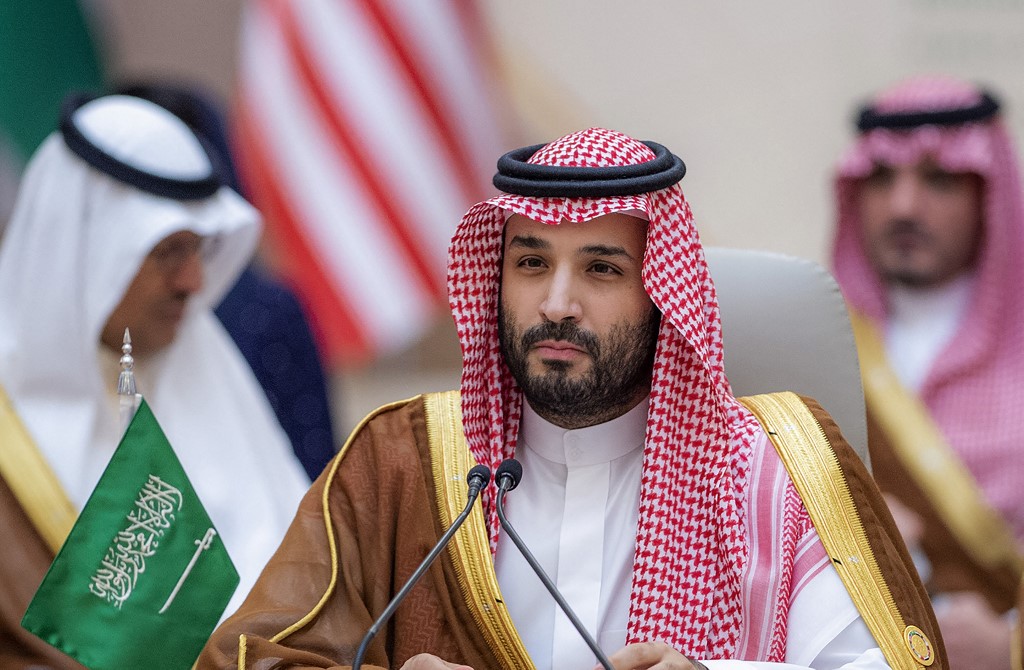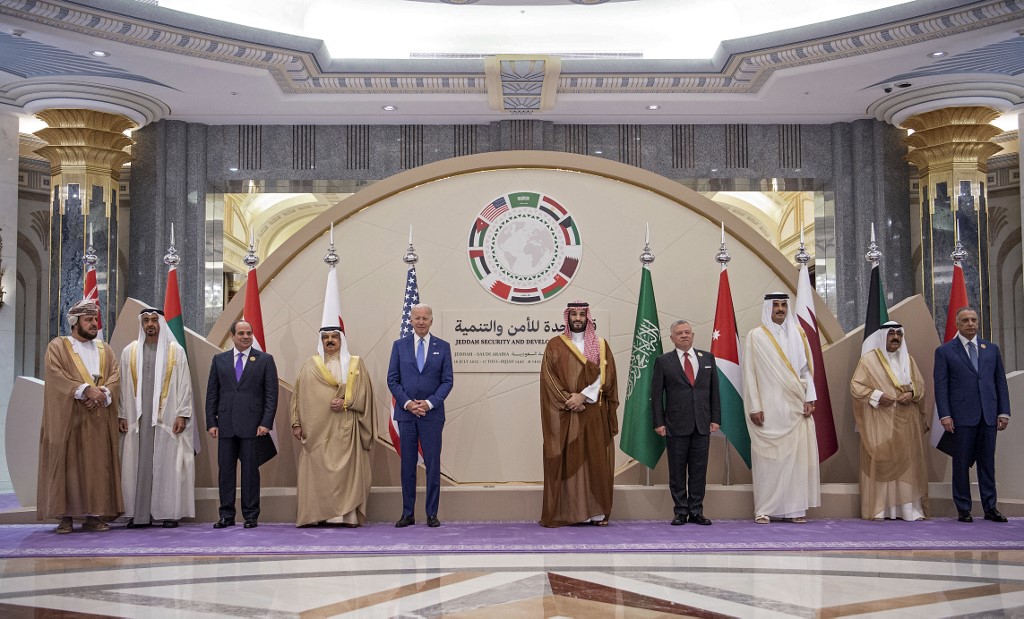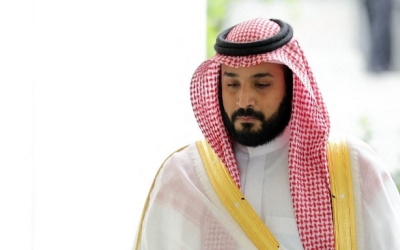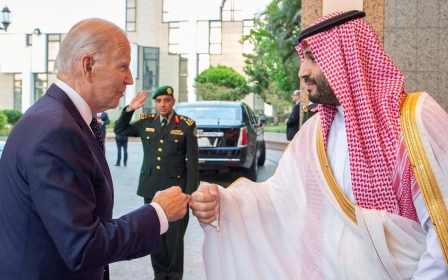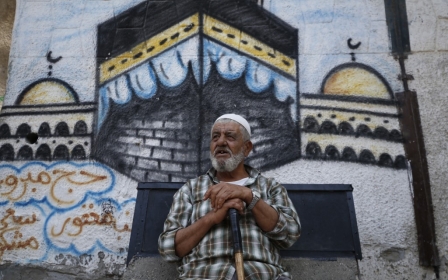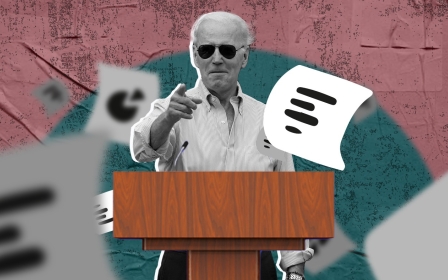Biden promises active US role in Middle East at regional Jeddah summit
The United States will remain an active, engaged partner in the Middle East, President Joe Biden told Arab leaders on Saturday at a regional summit in Saudi Arabia focused on Iran, oil production, food security and partnership with Israel.
In his speech at the summit with leaders from six Gulf states, Egypt, Jordan and Iraq, Biden said Washington will not walk away and leave a vacuum filled by Russia, China or Iran.
He also repeated the US commitment to ensuring Iran never gets a nuclear weapon.
Officially dubbed "Jeddah Summit for Security and Development," the meeting in the Saudi coastal city is the final stop on Biden's Middle East tour, which involved visits to Israel and the occupied West Bank.
Crown Prince Mohammed bin Salman, Saudi Arabia's de facto ruler, chaired the opening session of the summit, which King Salman did not attend.
Addressing the guests, he said that unified efforts were required to support the global economy and that unrealistic policies regarding energy sources would only lead to inflation.
"Adopting unrealistic policies to reduce emissions by excluding main sources of energy will lead in coming years to unprecedented inflation and an increase in energy prices and rising unemployment and a worsening of serious social and security problems," he said.
US officials have said Biden would discuss energy security at the summit with leaders of Gulf oil producers and hopes to see more action by Opec+ to boost output, but there was unlikely to be any bilateral announcements from the talks.
The US is eager to see Saudi Arabia and its Opec partners pump more oil to help bring down the high cost of gasoline and ease the highest US inflation in four decades.
Khashoggi murder discussed 'quickly'
Biden's visit to Saudi Arabia has been marked by his campaign promise to turn Saudi Arabia into a "pariah," as well as his decision to release an intelligence report implicating the crown prince in the murder of Washington Post and Middle East Eye columnist Jamal Khashoggi.
At the same time, Saudi Arabian activists and dissidents have lambasted the trip, saying they feel betrayed by the Biden administration who promised to hold Saudi Arabia responsible for human rights abuses.
'Such an incident occurs anywhere in the world'
- Mohamed bin Salman, Saudi crown prince
On Friday, after a lacklustre reception and a fist-bump greeting with Prince Mohammed, Biden said he raised Khashoggi's case "at the top" of their discussions, adding that he "made it clear if anything occurs like that again they will get that response and much more," without clarifying.
"The President raised the issue ... And the crown prince responded that this was a painful episode for Saudi Arabia and that it was a terrible mistake," said Saudi Minister of State for Foreign Affairs Adel al-Jubeir.
The Saudi-owned Al-Arabiya channel quoted a Saudi official as saying the pair "addressed the issue of Jamal Khashoggi quickly" and that Prince Mohammed agreed that what happened was regrettable.
The prince also reportedly pointed out that "such an incident occurs anywhere in the world," highlighting "a number of mistakes" made by Washington such as torturing detainees at Abu Ghraib prison in Iraq.
Jubeir, talking to Reuters about Friday's conversation, said MbS had made the case that trying to impose values on other countries by force could backfire.
"It has not worked when the U.S. tried to impose values on Afghanistan and Iraq. In fact, it backfired," Jubeir quoted the crown prince as telling Biden. "Countries have different values and those values should be respected."
Sideline talks
On the sidelines of the summit, Biden held a swift series of meetings with the different leaders of the region.
In a sit-down with Egyptian President Abdel Fattah el-Sisi, the pair discussed food security and disruptions to energy supplies, the Egyptian presidency said.
A US senior administration official said Biden would announce that the US has committed $1bn in new near- and long-term food security assistance for the Middle East and North Africa and that Gulf states would commit $3bn over the next two years in projects that align with US partnerships in global infrastructure and investment, according to Reuters.
After a meeting with UAE President Mohamed bin Zayed, Biden extended an invitation to the Gulf leader to visit the White House "before this year is out".
Bin Zayed, the UAE's de facto ruler for years, took office in May following the death of his half-brother, the long-ailing Sheikh Khalifa.
The wealthy Gulf state hosts US troops and has been a strategic partner to Washington for decades.
The relationship went through a "stress test” in March, according to Yousef al-Otaiba, the Emirati ambassador to the US, as the UAE abstained in a UN Security Council vote on a resolution demanding a Russian withdrawal from Ukraine.
Part of the sideline talks were focused on building momentum to integrate Israel as part of a new axis largely driven by shared concerns over Iran.
"We believe there's great value in including as many of the capabilities in this region as possible, and certainly Israel has significant air and missile defence capabilities, as they need to," an unnamed senior US administration official said according to Reuters.
"But we're having these discussions bilaterally with these nations."
Israeli leaders, whom the US president met on a two-day visit before arriving in Saudi Arabia on Friday, encouraged Biden's trip to the kingdom, hoping it would foster warming between Saudi Arabia and Israel as part of a wider Arab rapprochement after the UAE and Bahrain forged ties with Israel in US-brokered pacts that received Riyadh's blessings.
In a sign of progress under what Biden described as a groundbreaking process, Saudi Arabia said on Friday it would open its airspace to all air carriers, paving the way for more overflights to and from Israel.
A plan to connect air defence systems could be a hard sell for Arab states that do not have ties with Israel and baulk at being part of an alliance seen as against Iran, which has built a strong network of proxies around the region including in Iraq, Lebanon and Yemen.
Reuters and AFP contributed to this report.
Middle East Eye propose une couverture et une analyse indépendantes et incomparables du Moyen-Orient, de l’Afrique du Nord et d’autres régions du monde. Pour en savoir plus sur la reprise de ce contenu et les frais qui s’appliquent, veuillez remplir ce formulaire [en anglais]. Pour en savoir plus sur MEE, cliquez ici [en anglais].


